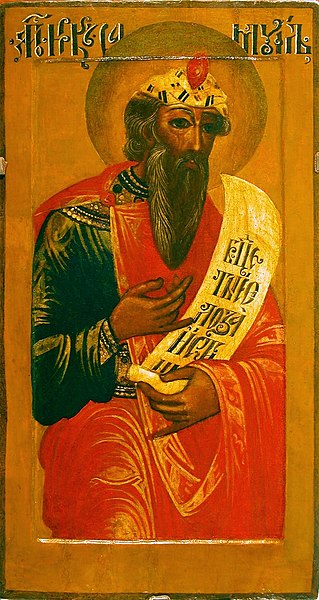7 July. Saul is rejected by God for disobedience
“Then the LORD spoke his word to Samuel: ‘I am sorry I made Saul king, because he has stopped following me and has not obeyed my commands.’ Samuel was upset, and he cried out to the LORD all night long.”
“Early the next morning Samuel got up and went to meet Saul. But the people told Samuel, ‘Saul has gone to Carmel, where he has put up a monument in his own honour. Now he has gone down to Gilgal.’”
“When Samuel came to Saul, Saul said, ‘May the LORD bless you! I have obeyed the LORD’s commands.’ But Samuel said, ‘Then why do I hear cattle mooing and sheep bleating?’ Saul answered, ‘The soldiers took them from the Amalekites. They saved the best sheep and cattle to offer as sacrifices to the LORD your God, but we destroyed all the other animals.’”
“Samuel said to Saul, ‘Stop! Let me tell you what the LORD said to me last night.’ Saul answered, ‘Tell me.’ Samuel said, ‘Once you didn’t think much of yourself, but now you have become the leader of the tribes of Israel. The LORD appointed you to be king over Israel. And he sent you on a mission. He said, “Go and destroy those evil people, the Amalekites. Make war on them until all of them are dead.” Why didn’t you obey the LORD? Why did you take the best things? Why did you do what the LORD said was wrong?’”
“Saul said, ‘But I did obey the LORD. I did what the LORD told me to do. I destroyed all the Amalekites, and I brought back Agag their king. The soldiers took the best sheep and cattle to sacrifice to the LORD your God at Gilgal.’”
“But Samuel answered,
‘What pleases the LORD more:
Burnt offerings and sacrifices
Or obedience to his voice?
It is better to obey than to sacrifice.
It is better to listen to God than to offer the fat of rams.
Refusing to obey is as bad as the sin of sorcery.
Pride is as bad as the sin of worshipping idols.
You have rejected the LORD’s command.
Now he rejects you as king.’”
“Then Saul said to Samuel, ‘I have sinned. I didn’t obey the LORD’s commands and your words. I was afraid of the people, and I did what they said. Now, I beg you, forgive my sin. Come back with me so I may worship the LORD.’”
“But Samuel said to Saul, ‘I won’t go back with you. You rejected the LORD’s command, and now he rejects you as king of Israel.’”
“As Samuel turned to leave, Saul caught his robe, and it tore. Samuel said to him, ‘The LORD has torn the kingdom of Israel from you today and has given it to one of your neighbours who is better than you. The LORD is the eternal one of Israel. He does not lie or change his mind…’”
“Saul answered, ‘I have sinned. But please honour me in front of the elders of my people and in front of the Israelites. Come back with me so that I can worship the LORD your God.’ So Samuel went back with Saul, and Saul worshipped the LORD.’”
(1 Samuel 15:10-31)

Saul had defeated the Amalekites of Havilah and had pursued them as far as Shur (see 1 Samuel 15 1-9). He had put all King Agag’s soldiers to death; but he had not followed God’s command to “destroy everything they own as an offering to the LORD.” (1 Samuel 15:3). Instead, Saul had kept the best sheep and cattle with the intention of offering them as a sacrifice later at Gilgal.
After the battle, Samuel sought out Saul at Gilgal. Saul brought the sheep taken from the defeated Amalekites to him to offer as a sacrifice. But Samuel condemned him for not destroying them immediately after the battle.
Although it was less than twelve months since Saul had been anointed king, Samuel told Saul that God had rejected him because he had disobeyed the LORD’s command.
Saul pleaded with Samuel to support him in front of the elders of Israel, and grabbed hold of his robe as he turned to walk away. But the robe tore, and Samuel delivered his final words to Saul: ‘The LORD has torn the kingdom of Israel from you today and has given it to one of your neighbours who is better than you.’ (1 Samuel 15:28)
Samuel then went to Gilgal with Saul so he could make the sacrifices Saul had planned. Afterwards, Samuel left and went home to Ramah. He never saw Saul again.
The photo shows a 17th century Russian Orthodox icon of the prophet Samuel (at Donetsk regional art museum).
You can read more about Samuel @ https://www.thebiblejourney.org/biblejourney2/29-the-journeys-of-ruth-and-samuel/samuel-is-taken-to-shiloh/
